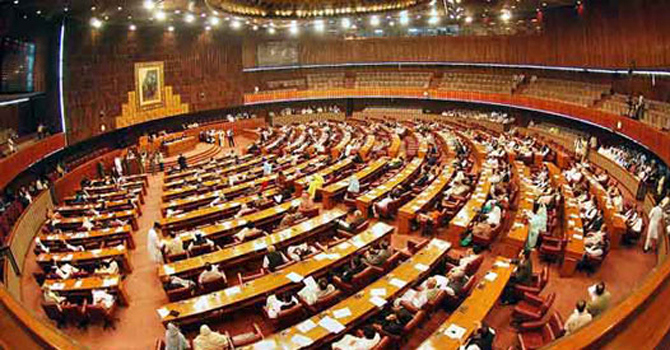
اسلام آباد – 16 ڊسمبر (اي پي پي) قومي اسيمبلي ۾ ڀارت طرفان منظور ڪيل ??ٽي??ن شپ ترميمي بل 2019ع کي تڪراري قانون قرار ڏيندي ان جي خلاف مذمتي قرارداد متفقه طور تي منظور ڪري ورتي آهي جڏهن ته ان قانون کي بي جي پي جي هندو انتهاپسندي جو نظريو، انساني حقن جي عالمي قانونن ۽ ٻه طرفي تعاون جي خلاف ورزي قرار ڏيندي گڏيل قومن ۽ ٻين عالمي ادارن کان مطالبو ڪيو و??و آهي ته اهو ڀارت تي دٻاءُ وجهي ته اهو قانون واپس وٺي.